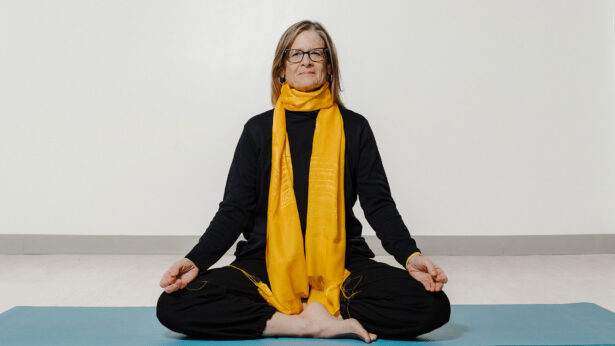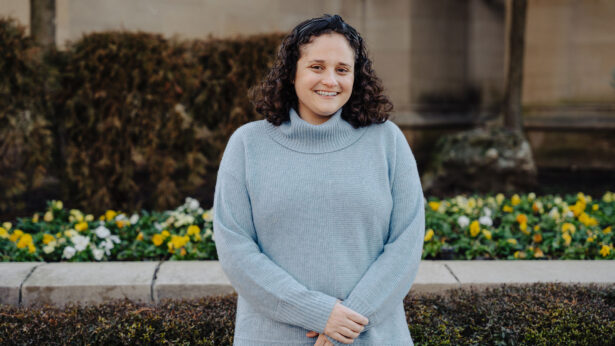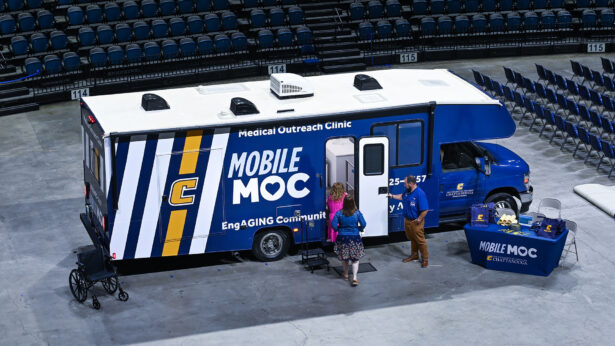By Aubrey Toldi
As I walked my colleague’s dog down a near vacant street in Catania, Sicily, Italy, I didn’t think about covering my nose and mouth. My colleague and I were sharing an Air B&B as we made travel plans for returning to the United States.
When I passed an older woman on the other side of the street who was taking out the trash, she scolded me for not wearing a face covering. I had previously used a lightweight, green scarf to keep most of my face covered only when inside a grocery or pharmacy, but after this incident, the scarf became a part of my everyday wardrobe.
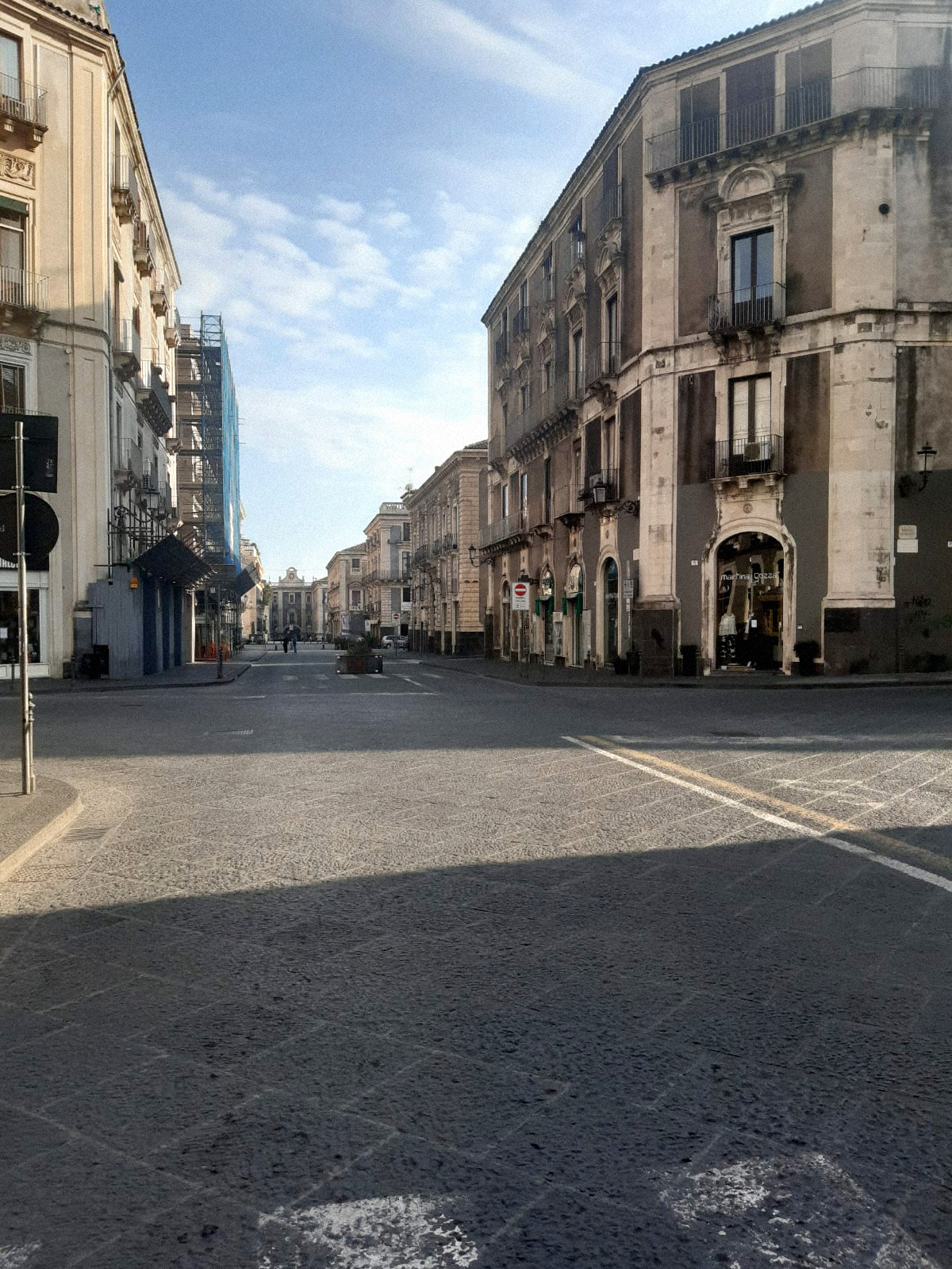
Photo courtesy of Aubrey Toldi
I arrived in Italy mid-September of 2019 and planned to stay through October 2020 as a 2019-2020 Fulbright research recipient. When my visa ended. I had plans to apply to at least two Ph.D. programs in Italy.
I first discovered my love for research during my time at the University of Tennessee. It led me to a master’s degree from the University of Memphis in urban planning in 2019, aligning my interests in multiculturalism and the natural environment. In Catania, I was partnering with the University of Catania to research community-led movements focused on addressing climate change, specifically promoting multi-beneficial approaches to mitigate stormwater runoff.
That all changed.
COVID-19 became a part of normal conversation in Italy towards the end of January 2020, but personally, I did not begin to recognize its potential severity until my layover in Milan returning from an EU/NATO seminar in Brussels on Feb. 8. Upon landing, all passengers traveling from outside of Italy were required to have their temperature taken. I, unknowingly, had a low fever at the time. I was escorted into a tarp covered room where I underwent a generic medical screening by an Italian medic and a Red Cross volunteer, both in hazmat suits. My information was taken, I provided emergency contacts in both Italy and the U.S., medical advice and guidelines were provided (if my symptoms worsened or I gained others, I was told to go to the hospital), and I boarded my connecting flight to Catania. I bought hand sanitizer, wore a mask, requested my own aisle on the following flight and monitored my fever every three hours.
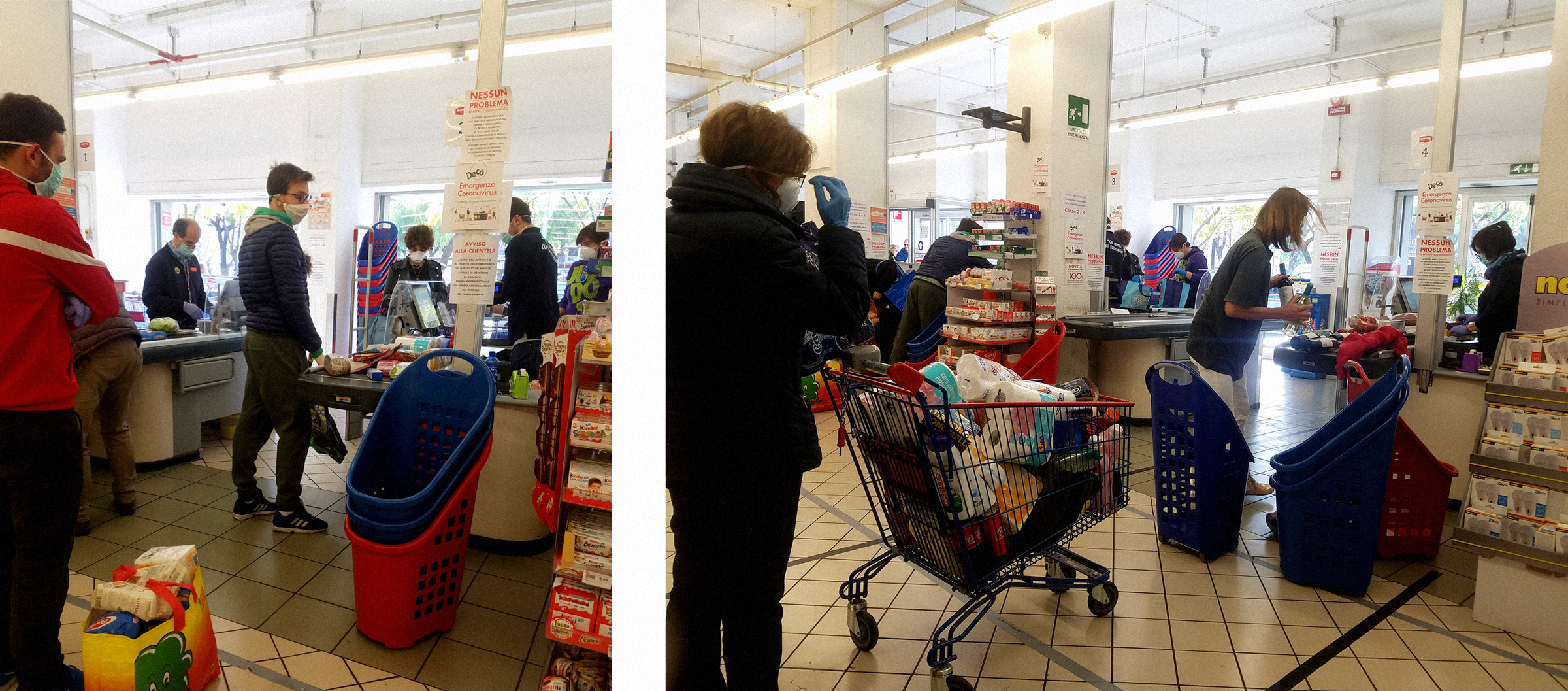
Photo courtesy of Aubrey Toldi
Following that trip, Catania began to feel like a different city. Events were cancelled, gathering spaces closed, my research team transitioned to working from home, celebrations were postponed, graduations became virtual. On March 10, Italian Prime Minister Giuseppe Conte announced Italy would be placed under lockdown and a hollow feeling developed in my gut. I knew then that life would not return to ’normal’ anytime soon. On March 11, I received news that my grant was suspended and my departure from Italy was mandated.
The massive amounts of transportation cancellations made securing a departure route difficult. While trying to navigate through cancelled flights and misinformation about travel bans and limitations, I spent eight days adhering to the Italian lockdown measures. All but groceries and pharmacies were closed, with queues outside the open stores as they only permitted a small number of individuals to enter. Residents were only permitted to visit the shops within approximately half a mile of their residencies, and only one member per household was to make the trip.
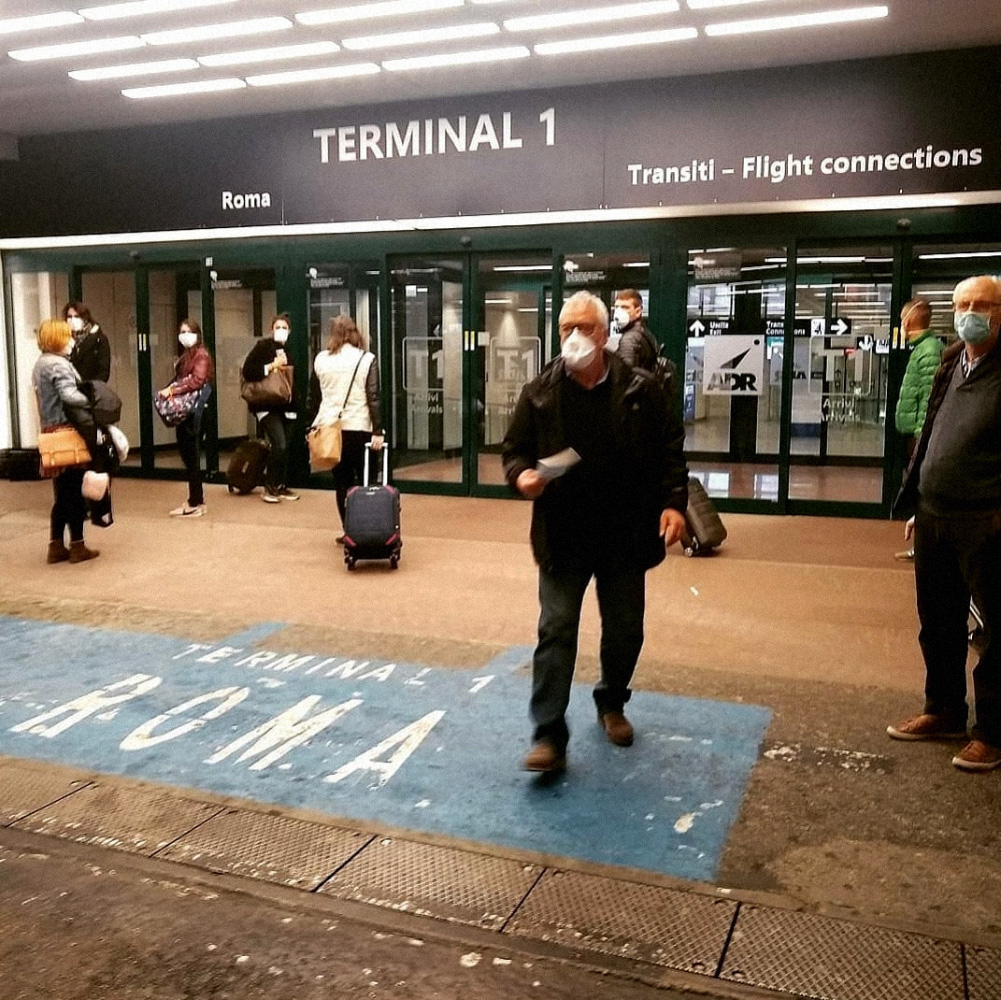
Photo courtesy of Aubrey Toldi
On March 17, I boarded the only flight that left Catania that day. I arrived in Rome then boarded a flight to the United States the following day. Landing in the John F. Kennedy International Airport, I felt like I had stepped back in time to a culture that was still blissfully unaware of COVID-19’s risk. My picture was taken for wearing a mask. I was casually bumped into while making my way to my connecting gate. No one around me adhered to social distancing. Talk about culture shock.
My COVID-19 pandemic has been a unique one, having witnessed the initial responses in two different countries and cultures that are both arguably two of the most impacted: Italy and the United States. Therefore, a Fulbright colleague and I decided to co-author an “out of the ashes” (of our Fulbright-related research) quarantine project – The Phoenix Project: a comparative study examining risk perception and trust in social institutions between those living in Italy and the USA during this global pandemic. We are asking for help in creating this new project. In order to collect data throughout the U.S., we hope that you can spare about 10 minutes to complete our survey The Phoenix Project and share the link with family, friends or even colleagues.
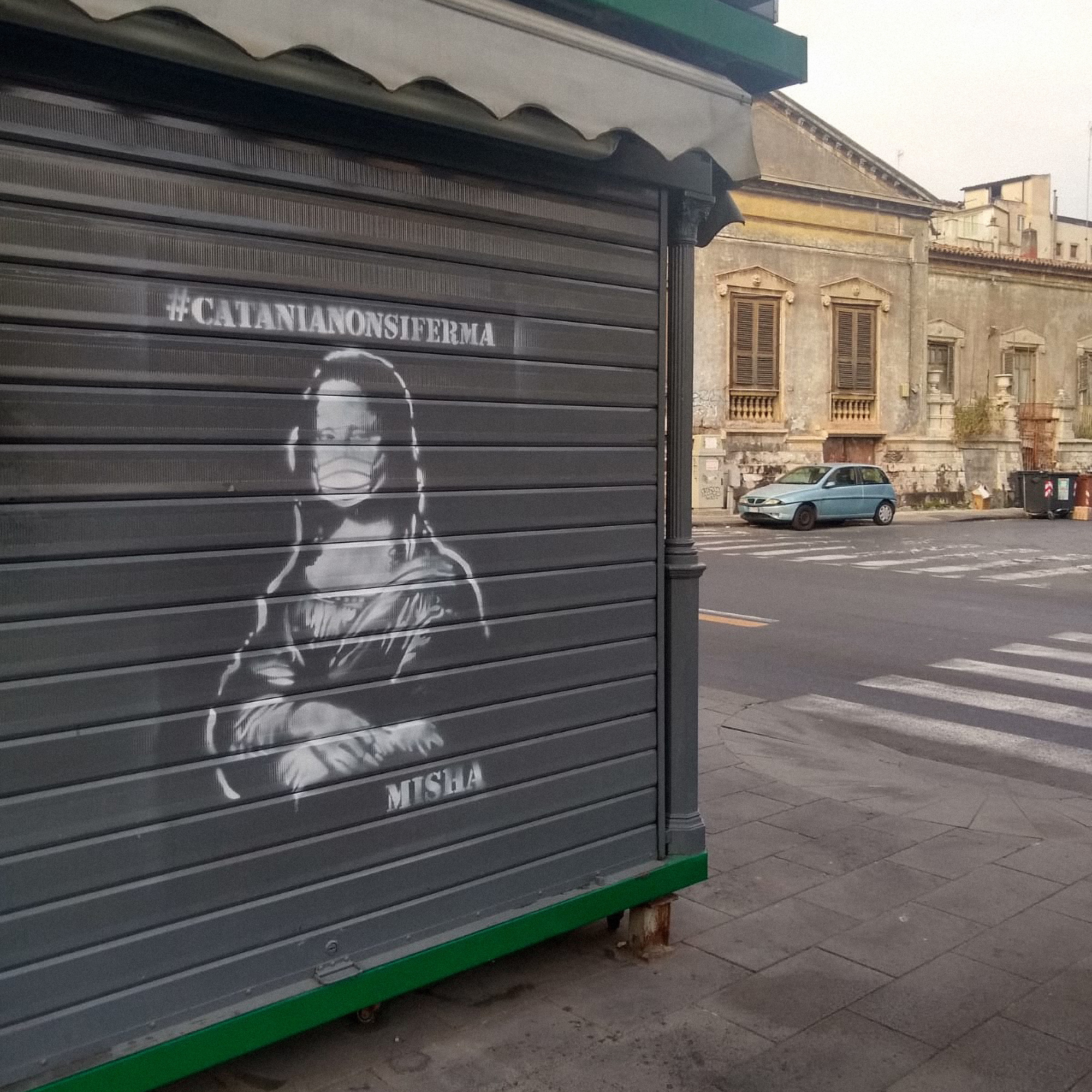
Photo courtesy of Aubrey Toldi
After spending 14 days in quarantine in Chicago, Aubrey Toldi (Knoxville ’16) is now living in Memphis.

